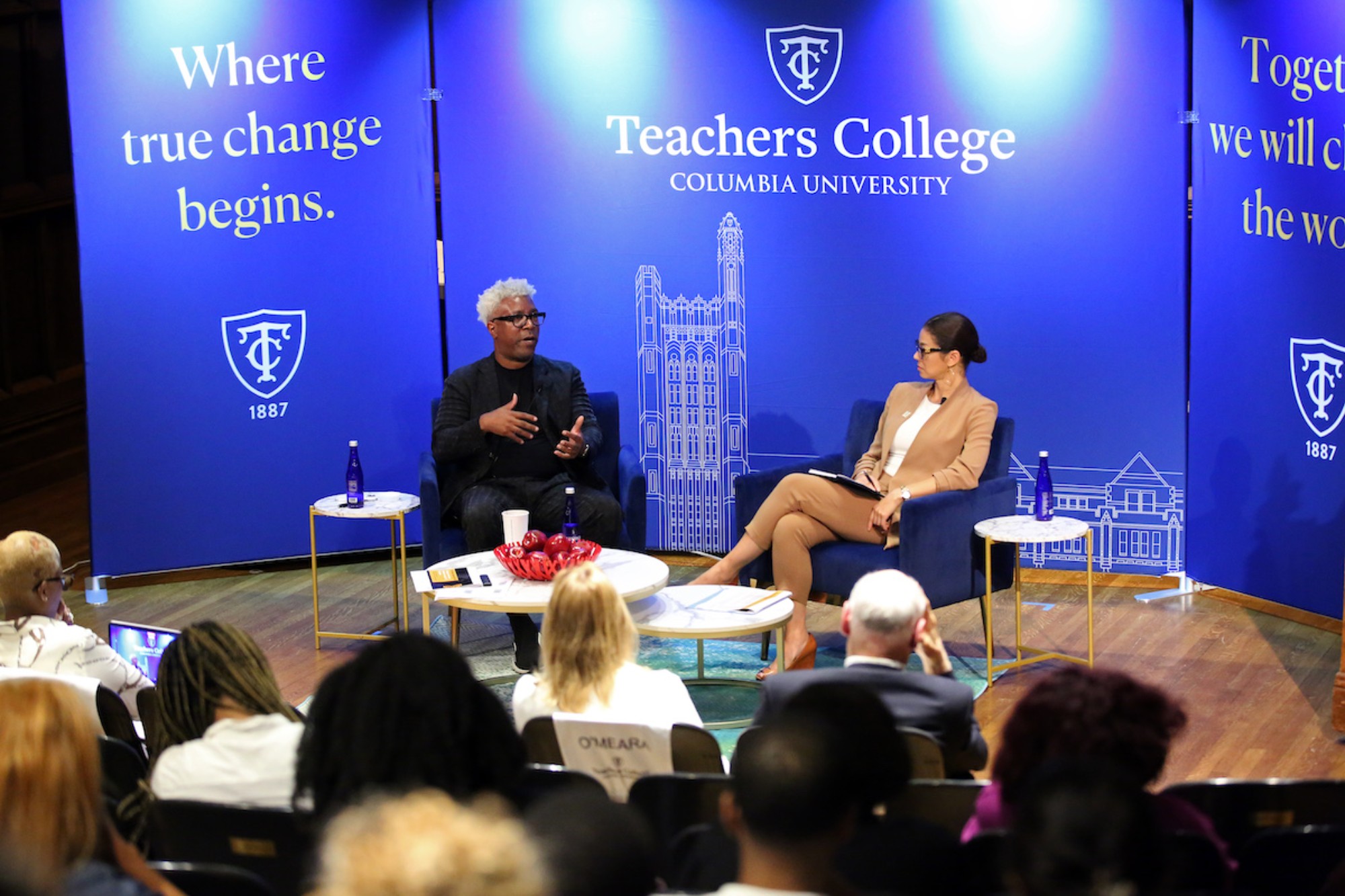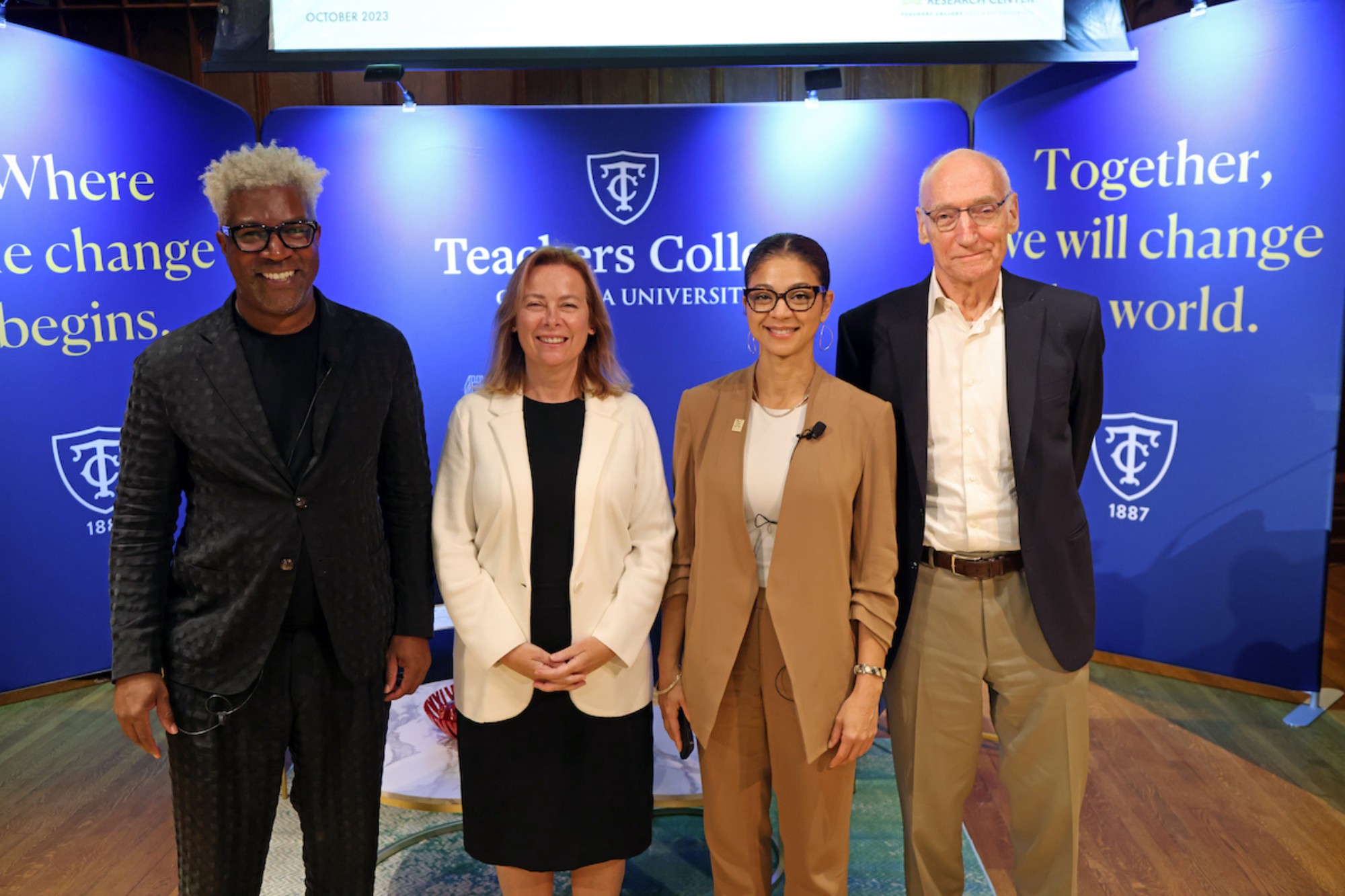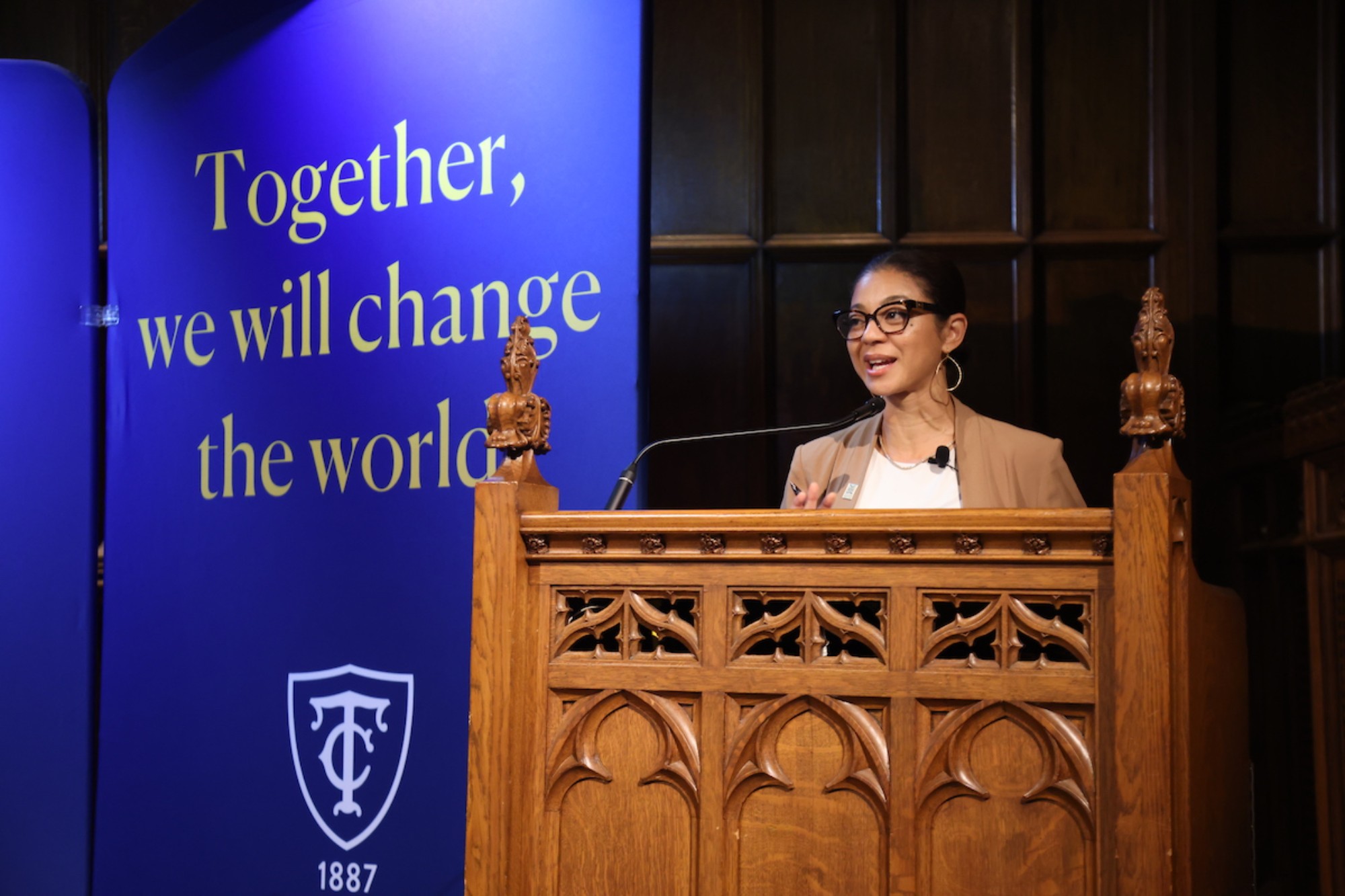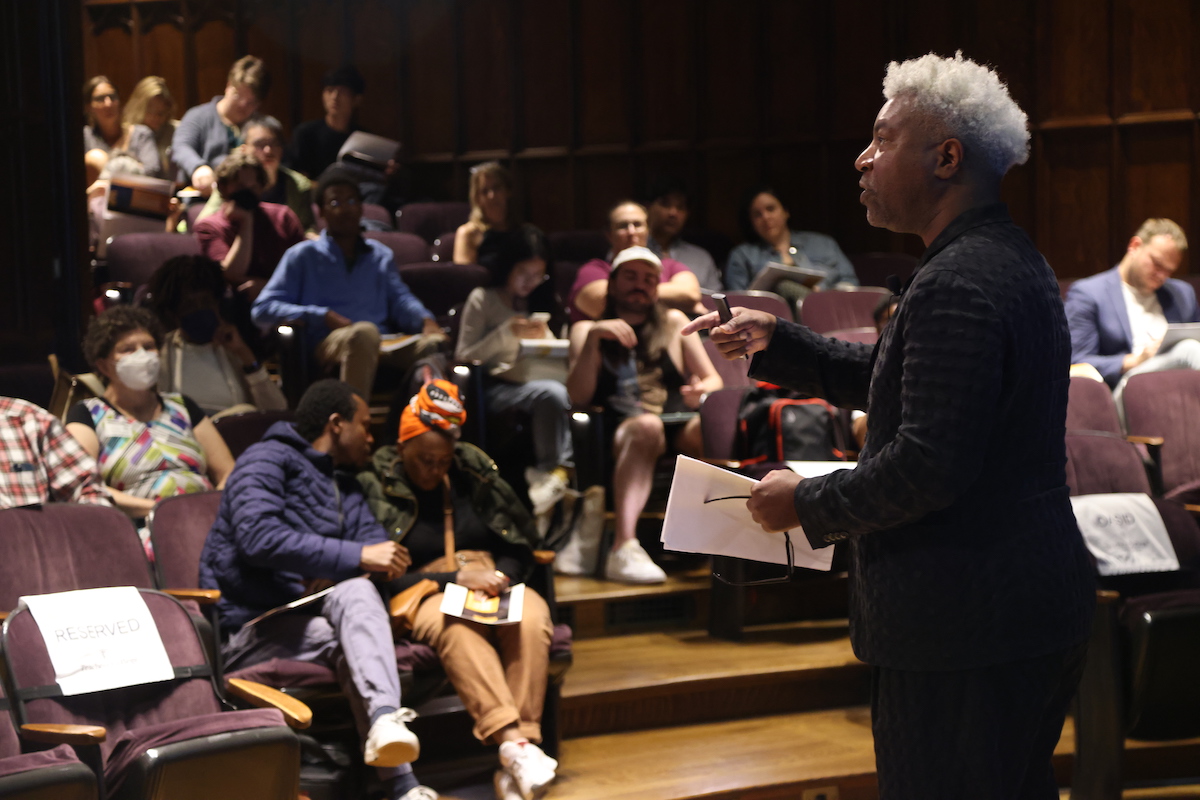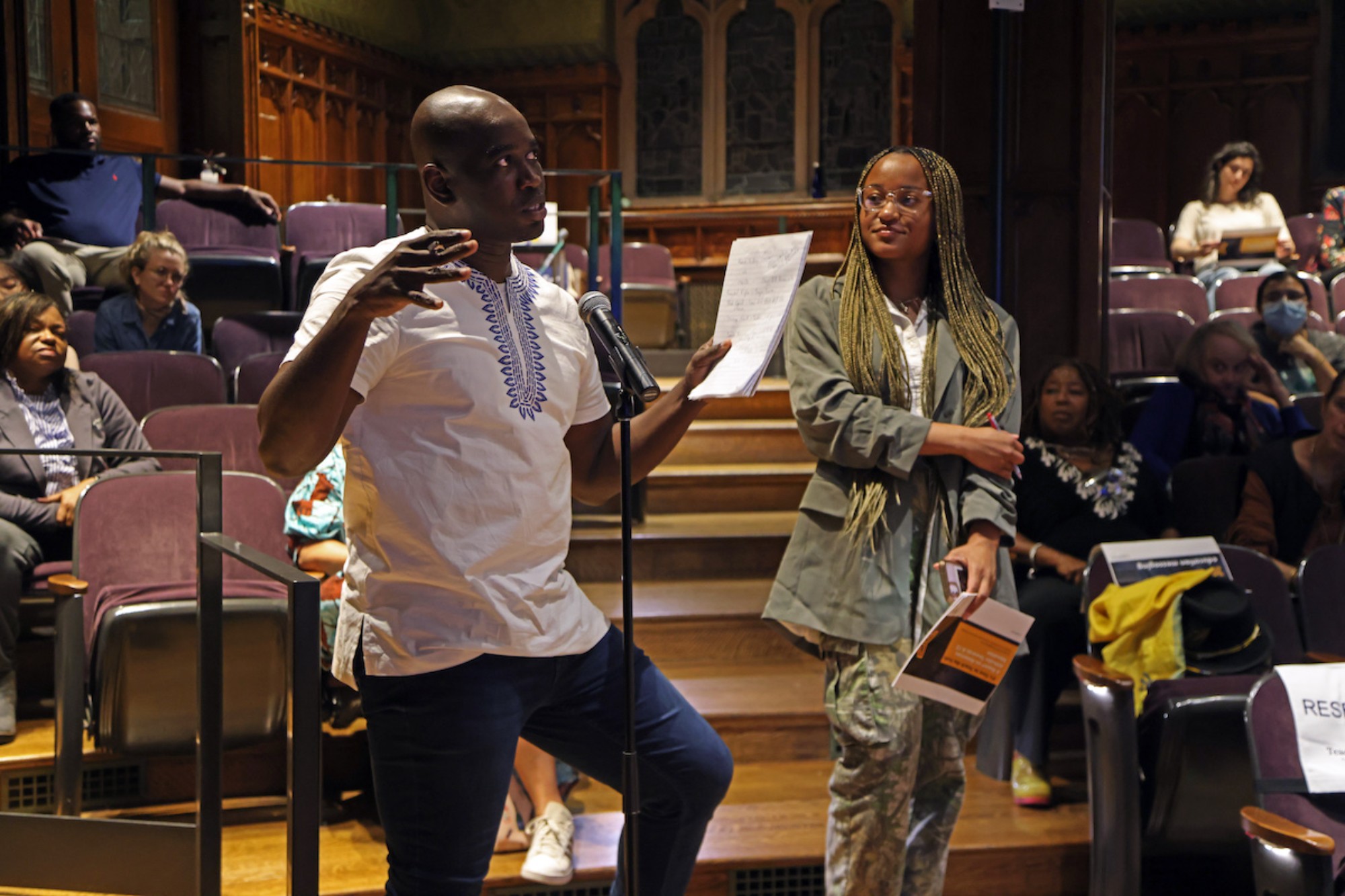As the U.S. grapples with waves of book bans and anti-inclusive education policies, a representative poll of 1,000 U.S. voters, conducted by Brilliant Corners Research & Strategies on behalf of the Black Education Research Center (BERC), revealed that an overwhelming majority support teacher agency and inclusive curriculum.
Titled It’s Time to Teach the Truth: A Report on American Attitudes Toward K-12 Education, the results and corresponding analysis also suggest that attacks on education don’t resonate with the general public and Americans are supportive of including Black and ethnic studies units into K-12 curriculum.
BERC unveiled the results with a presentation by renowned pollster and President of Brilliant Corners, Cornell Belcher, followed by a conversation and Q&A with Belcher and Sonya Douglass, Director of BERC and Professor of Education Leadership.
“The work that Professor Douglass is doing through BERC, and that I see through Brilliant Corners and the partnerships established with NYC, reveal what works to make what we want to see possible—enabling the future,” said Provost KerryAnn O’Meara in her opening remarks. Indeed, the poll findings, and ensuing conversation between Douglass and Belcher offer a thoughtful foundation from which to consider how U.S. curriculum can more adequately reflect the educational priorities of all Americans. Read on for major takeaways from the report.
Americans agree that students should learn about racism in the U.S.
Despite the push by some politicians to restrict it, 85% of Americans agree that students should learn the history of slavery and racism in the U.S. and how it continually affects society — a figure that crosses partisan divides and makes the case for curriculum that more fully reflects America’s complex history.
The poll also revealed that 78% of respondents agree that in order to develop critical thinking skills, teachers must challenge students with different and sometimes uncomfortable points of view.
“The data underscores the urgent need for inclusive, truth-centered education that addresses the complexities of our history...Americans are saying: let teachers teach and stop playing politics in the classroom," says Belcher.
These findings bolster previous data collected by BERC. In 2022, the center released The Black Studies Curriculum: An Educational Necessity for New York City Public Schools, a report that found strong support for inclusive curriculum among Black voters in New York. This year’s report shows that support for inclusive curriculum, including dedicated Black studies units, have broad support in the U.S.
Douglass is directly involved in the effort to build Black studies curriculum through her work as a principal investigator for the $25 million NYC Education Equity Action Plan.
Respondents trust teachers, but through effective messaging that number could be higher.
While a majority of Americans agree that teachers are trusted professionals who should have the discretion to adapt and introduce lesson plans, during the presentation Belcher showcased the power of additional information, saying that support for teachers to make decisions in the classroom rose from 51% to 58% after exposure to arguments in favor of teachers.
Noting the considerable impact rhetoric had in a short amount of time, Belcher urged the audience to get active in their communities. As Douglass describes it, “a small, vocal minority is attempting to hold our education system hostage” and Belcher has ideas for how people can fight back.
Simply, show up at school board meetings. “You’ll be amazed at what you can do if you just show up and you’re loud…we can’t rest just knowing that we’re right, we have to be active, we have to show up, we have to push back,” says Belcher.
Americans feel schools are underfunded with significant educational gaps.
Broadly, voters agree that the country isn’t spending enough on education. Black voters, especially, feel education is underfunded, with 79% of that group agreeing that their state doesn’t spend enough. When it comes to increasing spending, there is a national consensus that teachers should be paid more.
Americans also feel that schools are not meeting expectations for students, with the largest gaps seen around basic life skills, understanding American history and developing critical thinking skills. Perhaps most notably, the data show that the most important issues to respondents have the lowest perceived performance among students.
Of the findings, Douglass says, “it's clear that Americans value diversity and critical thinking, and they recognize the role public education plays in fostering these principles. These findings should serve as a call to action for a more comprehensive and inclusive educational environment that better prepares our students for a diverse and complex world.”

